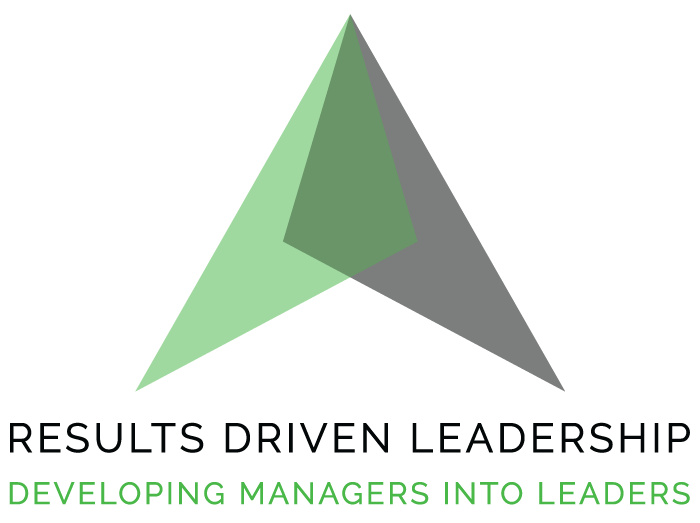In the high-pressure world of management, there’s a seductive trap that ensnares many a well-intentioned manager: the allure of being unerringly “right.”
It’s a mindset that whispers of order, of precision, of the ship sailing smoothly under the unchallenged command of its captain. But here’s the rub: this approach, often dubbed “Command and Control,” is a relic of a bygone era, a strategy that, when wielded as the default management style, is doomed to falter in the dynamic seas of modern business.
The crux of the matter lies in the very nature of “being right” as a management philosophy. It’s a stance that, at its core, is about micromanagement, about holding the reins so tightly that every flicker of initiative from the team is snuffed out before it can even catch a spark. It’s a world where the manager’s word is law, where deviation is discouraged, and where the vibrant tapestry of diverse ideas is bleached to a monochrome of compliance. But in this quest for perfection, for the unassailable execution of tasks, the manager unwittingly sets the stage for the very outcome they dread: mediocrity, stagnation, and a team that operates not on the fuel of innovation but on the fumes of resignation.
The irony is palpable. In the pursuit of “doing things right,” the Command-and-Control manager constructs an environment where things can never truly be done right. The reason is simple yet profound: just because a manager believes they are right does not mean that the team, the ones on the front lines turning strategy into action, shares this conviction. And why would they voice their dissent, their insights, their innovative ideas? The culture of demand and infallibility, meticulously cultivated by the manager’s insistence on being right, has taught them that their voices are not valued and that their perspectives are not welcome.
What, then, is the antidote to this cycle of command and control, of rightness and rigidity? The answer lies in the concept of decentralized command, a paradigm where the team is not a collection of cogs in a machine but a group of independent thinkers, each brimming with initiative, creativity, and the quiet confidence that comes from being trusted and heard. In this model, the manager is not an overlord but a facilitator, one who sets the vision and then empowers the team to navigate the path forward, making decisions, solving problems, and, yes, sometimes faltering, but always learning and growing.
In such an environment, complaints are rare, not because issues are nonexistent but because the culture encourages open dialogue and collaborative problem-solving. Contributions soar, not out of fear or obligation but from a genuine desire to achieve shared goals. This is the essence of effective management, where the focus shifts from being perpetually “right” to fostering an ecosystem where the right results emerge from a foundation of trust, autonomy, and collective intelligence.
So, to my fellow managers, I say this: let go of the reins, step back from the helm, and watch as your team charts a course not just to the destination you’ve set but beyond it, to horizons you hadn’t even dared to imagine. In the end, it’s not about being right; it’s about doing right by your team, your mission, and the unbounded potential that lies within a truly empowered collective.
The perils of clinging to the mantle of “rightness” extend far beyond the immediate discomfort of disagreements; they manifest in the gradual disintegration of team cohesion, the silent toll of high employee turnover, and the insidious blame game that poisons relationships at every level. It’s a scenario all too familiar in the corporate world: a team’s failure becomes a blame fest, with fingers pointed everywhere but at the leader. Goals remain unmet, and the cycle of dysfunction spins on, all while the common denominator—the leader’s unyielding stance—remains unexamined.
Yet, acknowledging this is only the first step in a transformative journey that requires courage, humility, and a steadfast commitment to growth. The path to shedding the armor of “rightness” is neither swift nor easy, as it challenges leaders to confront the deeply ingrained habits and mindsets that have shaped their approach for a lifetime. But the rewards of such a journey are immeasurable, not only for the leader but for the entire organization.
Let’s delve into the heart of this challenge, exploring the subtle yet profound ways in which the insistence on being right undermines leadership effectiveness. We will uncover the telltale signs of this leadership pitfall and, more importantly, chart a course toward a more open, reflective, and adaptive leadership style. Through a blend of self-assessment, feedback, and targeted development, leaders can embark on a path of self-improvement that fosters a culture of accountability, resilience, and mutual respect. Join us as we explore the transformative power of embracing vulnerability and the boundless potential of leadership grounded not in being infallibly “right” but in being authentically human.
Let me tell you about Mike…

It’s time to face the truth …
With the coach’s guidance, Mike delved into the world of DISC, unraveling the tapestry of human behavior and communication styles. It was an epiphany, a revelation that his approach, particularly with the high S individuals on his team, was like speaking in a foreign tongue, expecting fluency in a language they’d never learned. His aggression, his intensity, it didn’t inspire—it terrified. It turned his team into shadows, silent and evasive, not out of apathy but out of sheer self-preservation.
The transformation wasn’t overnight. It was a path paved with humility, a journey of unlearning and relearning. Mike began to temper his fire, to approach his team not as a general leading troops but as a guide, a mentor. He learned the art of collaboration, the strength in vulnerability, and the power of servant leadership.
And as Mike changed, so did the world around him. The office, once a battlefield, became a sanctuary of synergy and innovation. Turnover dwindled, mistakes became lessons rather than failures, and the team, Mike’s team, the same team that was a group of screw-ups a few months ago, flourished like never before.
In the end, Mike’s story became one of redemption, a testament to the transformative power of self-awareness and adaptability. It was a reminder that sometimes, to lead is not to tower above but to walk alongside, to listen, and to grow together.
Time To Look In the Mirror?

If you find yourself navigating through the following challenges in your workplace, it’s likely that the issue of the “I’m the smartest person” syndrome is at play. This mindset, where a manager believes they hold all the answers, can lead to a range of dysfunctions that not only hinder team performance but also corrode the very fabric of workplace culture. You may, in fact be the smartest person in the room, but I assure you that you are not as smart as the collective room.
Let’s break it down, shall we? When you’re at the helm, convinced your way is the only ticket, you’re inadvertently slamming the door on the kind of out-of-the-box thinking that propels us forward. It’s like telling your team, “Thanks, but no thanks,” every time they dare to toss an idea into the ring. The result? They have no ideas. None. They have no initiative, and why should they? You have a creativity drought. In most cases, they are never given the opportunity to offer ideas or objections. They are blocked like Hakeem “The Dream” Olajuwon. Your conversations are all monologs with Vlad the Impaler.
Then there’s the trust issue. Picture this: You’re part of a crew, but every time you chip in, your two cents get brushed off like lint on a jacket. How long before you check out, morale hits rock bottom, and the whole team vibe goes south? It’s tough to rally the troops when they feel like their insights are about as valuable as a screen door on a submarine.
And oh, the drama it stirs up. When you’re the self-appointed “brainiac” of the bunch, it’s like you’re throwing down the gauntlet at every turn. Disagreements aren’t just disagreements anymore; they’re full-blown showdowns, with everyone on edge, ready to defend their corner of the sandbox because they know you’re not about to budge an inch.
Decision-making becomes a solo act, too. It’s like you’re wearing blinders, charging ahead with what you think is the winning play, without so much as a nod to the collective wisdom around you. But here’s the kicker: that tunnel vision can lead you straight into a ditch, missing out on the kind of game-changing insights that only come from a huddle.
So, if any of this sounds eerily familiar, it’s time for a wake-up call. It’s about recognizing the cracks in the “I’m the smartest person here” facade and getting down to the brass tacks of building a space where everyone’s voice matters, where collaboration isn’t just a buzzword, and where, together, we’re more than the sum of our parts.
The Life Raft is Here!
Alright, let’s tackle this beast of always needing to be “right.” It’s a tough nut to crack, but here’s how we can start chipping away at it:
- Dive into the Feedback Pool:
Roll up your sleeves and dive headfirst into the feedback pool. I’m talking about getting the lowdown from everyone—peers, direct reports, even the folks you bump into at the coffee machine. It’s all about broadening your horizon and seeing your leadership style through a kaleidoscope of perspectives. Trust me, it’s an eye-opener. 360 Feedback is a game changer.
Contact Us For Our Tallasure 360 Feedback Program
- Zero In on Your Achilles’ Heel:
Once you’ve gathered all that intel, it’s time to play detective. Look for patterns, recurring themes—those little nuggets of truth that keep popping up. Found one? That’s your target. Whether it’s beefing up your listening skills, dialing up the empathy, or getting a grip on delegation, make it your mission to turn that weak spot into your next big win.
- Buddy Up with a Yoda:
Find yourself a mentor or a coach, someone who’s been around the block and can help you navigate the twists and turns of this leadership journey. This is your Yoda, your Mr. Miyagi—someone who can offer wisdom, challenge your assumptions, and guide you as you test out new strategies and behaviors.
Contact Us For Our Executive Coaching Program
- Remix Your Routine:
It’s time to shake things up and remix your daily routine. Start weaving in those new approaches you’ve been mulling over, whether it’s how you kick off a meeting, give feedback, or tackle decision-making. Remember, Rome wasn’t built in a day, and neither is a new habit. Stick with it, and you’ll start seeing shifts in how you and your team operate.
- Make Friends with Failure:
Here’s the kicker: you’re going to stumble. Maybe even face-plant. But here’s the secret sauce—every misstep is a goldmine of insights. So, when things don’t go as planned, don’t throw in the towel. Dust yourself off, do a post-mortem, and mine those setbacks for the priceless lessons they hold.
By rolling up your sleeves and tackling these steps head-on, you’re not just chipping away at that need to always be “right.” You’re laying the groundwork for a team culture that’s more inclusive, more dynamic, and, heck, a whole lot more resilient. And the cherry on top? You’ll be setting the stage for a level of performance and team satisfaction that’s through the roof. You’ll find that being “Right” was the “Wrong” path to success. Let’s get after it!





